2021: A dog odyssey
Dogs, monoliths, and the importance of novelty
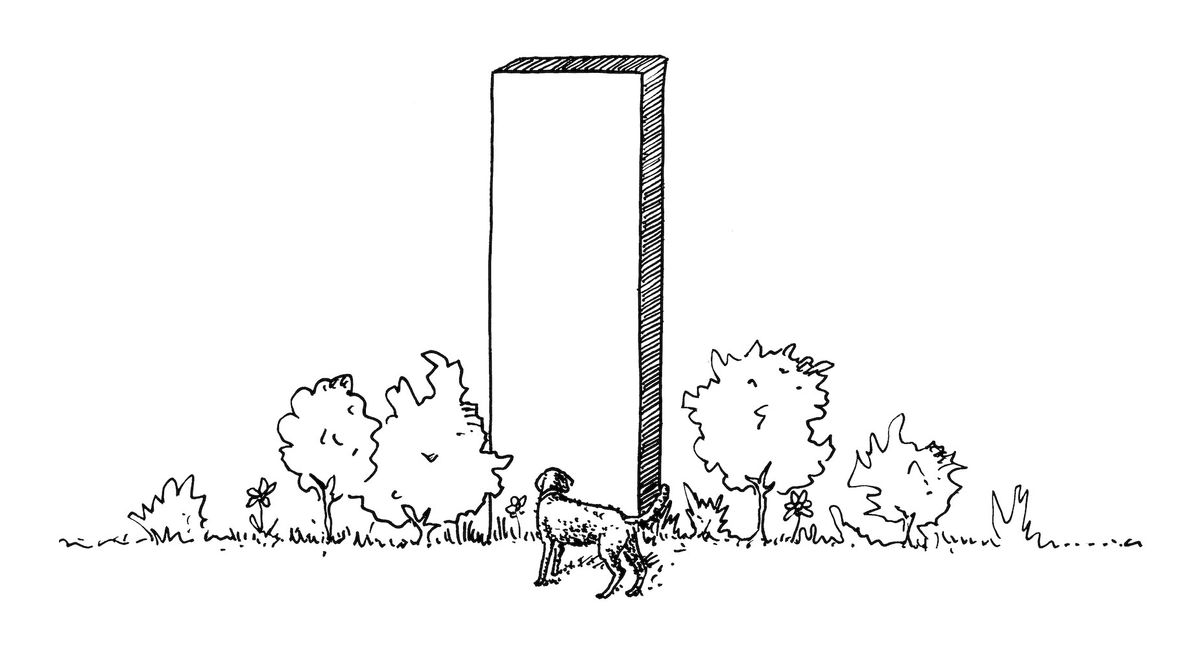
There’s a sports ground down the road where I walk my dog Teddy. There are lots of grey poles for the lights, so people can train at night in the eerie blue light. I take his lead off when we get there, and he immediately rears up like a horse and gallops around, so ecstatic about the opportunity to clomp about that sometimes he forgets his legs and falls over trying to change direction at speed. He is clumsy (about as coordinated as a teddy bear – the name is apt in more ways than one), but undoubtedly full of joy.
My partner Vic’s go-to for a Teddy outing is the local dog park, where all sizes and breeds of dogs completely lose their minds in a muddy moshpit orgy of barking, sniffing, humping and chasing. I prefer the park. It’s predictable, and without thinking about it too much, this predictability feels easier, and when you’re coordinating the lives of others – pets, children – “easy” is desirable. I was late in life to dog appreciation, and I’d still rather deal with one at a time.
I did start to wonder whether the quietude of the sports ground might be boring to Teddy, compared to the mad ecstasy of the dog park. The grass is neatly clipped, the boundaries are fenced, the trees are evenly spaced. My experience of the place is that it’s pretty much always the same, weather conditions and seasonal fluctuations aside.
But after visiting the sports ground a bunch of times and observing Teddy, it’s not actually always the same to him. He’s drawn to the tall grey poles, examining and probing them with an intensity that I can’t fathom. To me, it’s just a pole, with a sad, burnt ring of dead vegetation where it’s been sprayed (sidenote: is this really the best solution we have for grass growing close to a pole?).
With his super dog olfactory powers, tens or hundreds of thousands stronger than ours, Teddy can sense that it’s entirely different every time we go there – just not visually. He can detect that Annabelle the dachshund was here, and she’s been having a fantastic week. Eddy the doberman devoured a new kind of dog biscuit for lunch yesterday – and it didn’t agree with him. Bessie the aggressive chihuahua was here not so long ago, and man was she in a bad mood – but that’s just Bessie. It’s basically Facebook for dogs.
The reverence Teddy seems to have for this experience reminds me of the scene in 2001: A Space Odyssey, where a group of primates whip themselves into a frenzy over the unexpected intrusion of a monolith on the rocky landscape outside their cave. They scream at it, jump at it, work up the courage to touch it. Then they start getting smarter – turns out, an advanced alien race has placed these monoliths to jumpstart the evolution of more primitive civilisations. With this newfound intelligence the primates work out they can use bones as weapons, and they promptly attack another group of primates. The movie could perhaps end there as an indictment of misusing intelligence.
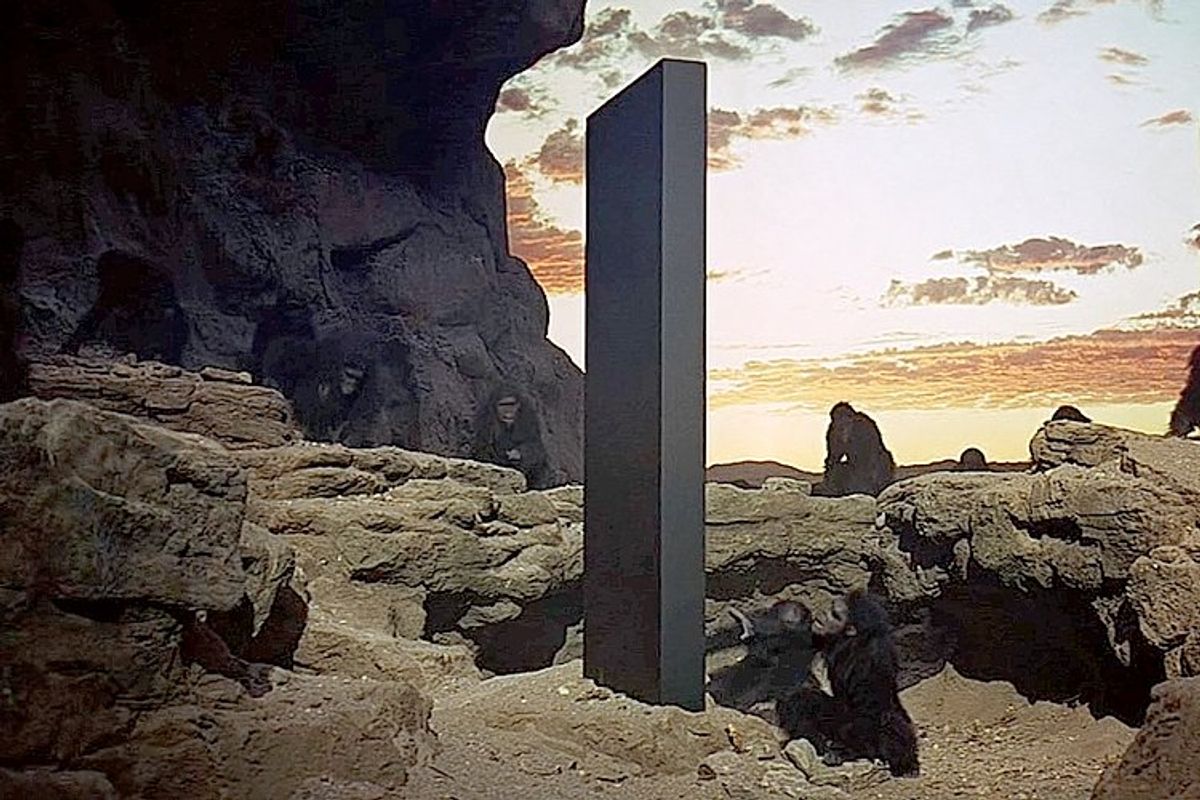
This might actually be the level of novelty required for a person to be as entranced by this walk through the sports domain as Teddy – for each of these not to be poles but towering alien monoliths with smooth faces and sharp edges, unlike any structure we’ve seen, emanating secret intelligence rays, with a musical score building to a crescendo in the background. This actually happened recently (although not at the local sports ground, and minus the intelligence rays and music). A silver monolith appeared in the Utah desert, and then others started popping up around the world. There was, I think, some genuine surprise, but people quickly failed to suspend their disbelief, eventually more bemused than anything else. One art critic lamented that social media really just portrayed the happening as a “tedious prank”:
“It would be ironic if these structures really are the work of highly intelligent extraterrestrials trying to make first contact – but we’re so jaded by art pranks and sci-fi cliches that we’re taking it for an elaborate stunt. “Earthlings, we wished to impart the secret of the universe, but you are too cynical,” they’ll lament as they obliterate us.” — Jonathan Jones
Can nothing surprise us? Stacks of research actually suggest that novelty is important for learning, longevity and happiness – we’re worse off if we’re never surprised, if we only ever gravitate towards the familiar and dependable. This is something I know that I’m guilty of. I don’t look for novelty, thus I’m unlikely to find or notice it. And I can’t just wait for some super advanced alien race to introduce a series of monoliths to surprise me.
Teddy is always looking (well, smelling), always surprised by what he finds, and always delighted – and he does not place any conditions on this. He needs this sense of novelty for his mental health, to know there might be new things around the corner. On the surface, he may seem like a gigantic, goofy, ginger galumph of a dog, pulling on the lead or running off to sniff at everything. But he’s also captivated, never disappointed, and utterly joyous about going for a walk. I never thought I’d say this, but: I have much to learn from my dog.

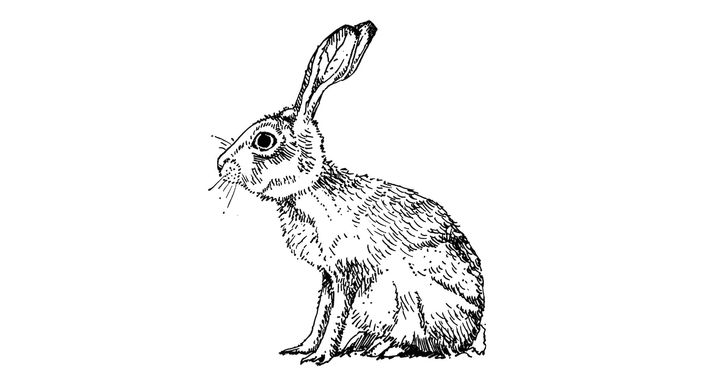
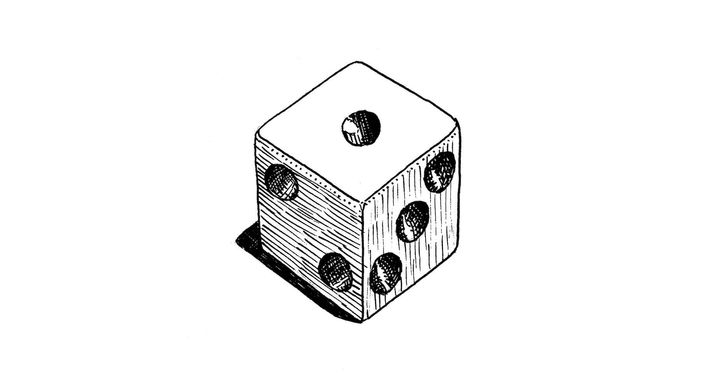
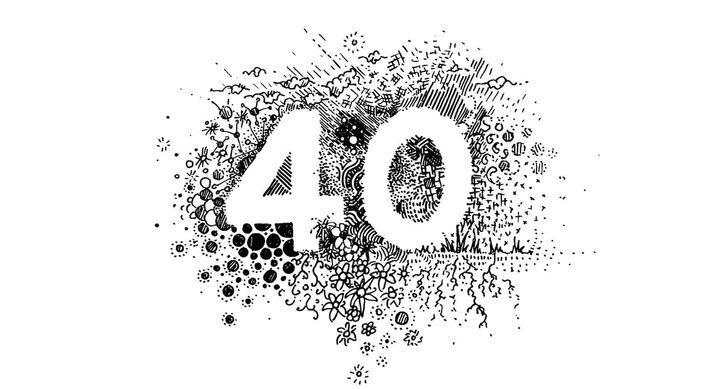
Comments ()